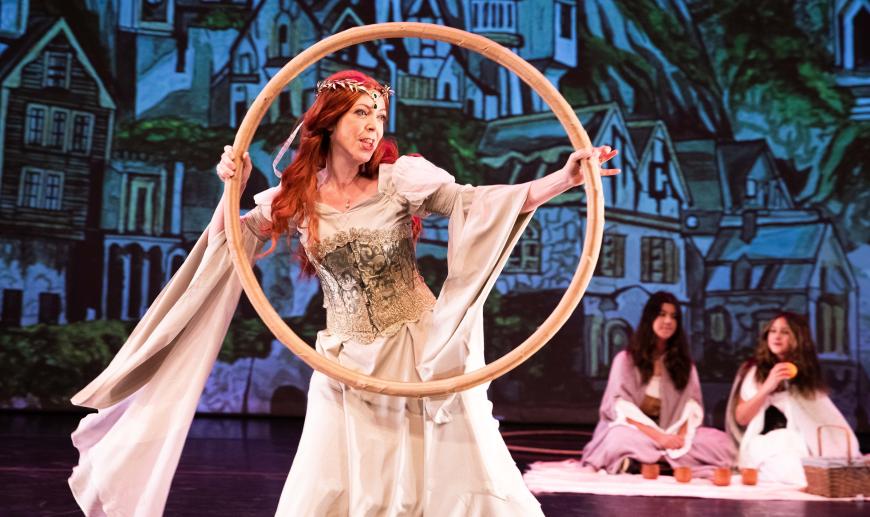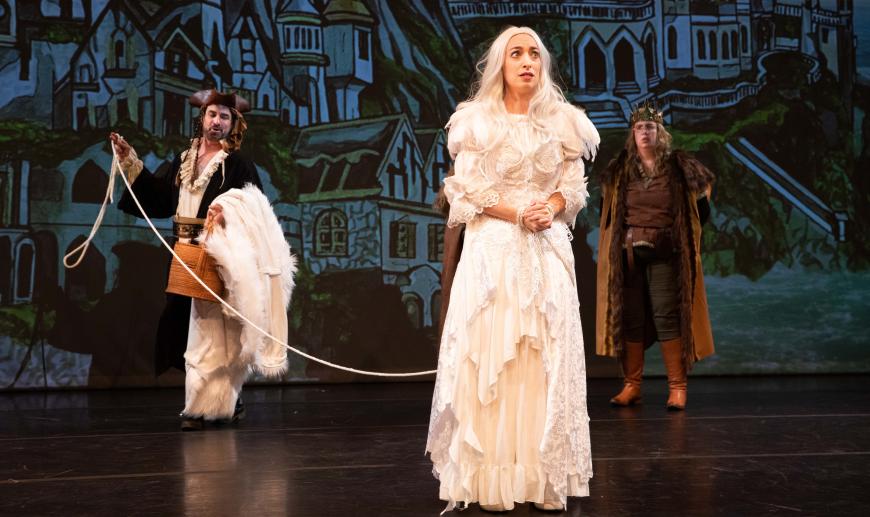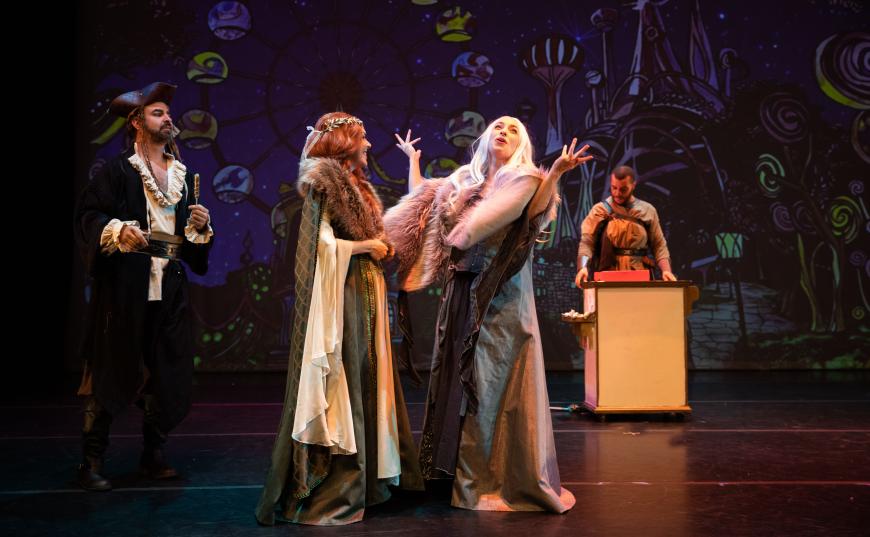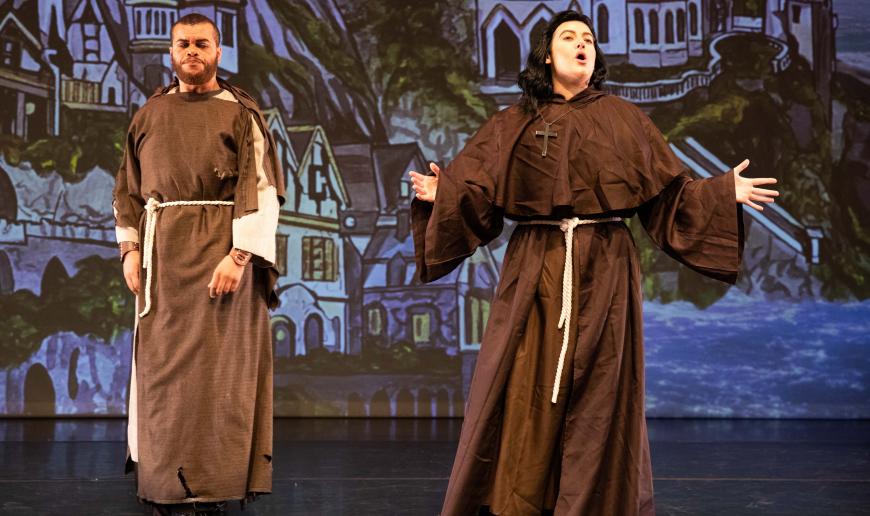
Every opera was new once, but not many get a second premiere — unless Ars Minerva takes them on. The feisty San Francisco-based company, spearheaded by founder and Executive Artistic Director Céline Ricci, specializes in reviving gems from the ample archives of long-forgotten Baroque operas, each year bringing one to life in an accomplished and highly accessible production. Once again, Ars Minerva has struck gold, this time with Domenico Freschi’s Olimpia Vendicata — originally a big hit in Venice in 1681 but probably not staged again until Friday night’s opening at San Francisco’s ODC Theater.
Venice in the 17th century was mad for opera, with dozens of new works every season in the city’s many opera houses. Freschi seems to have happily taken time off from his day job as cathedral music director in nearby Vicenza to compose at least one new opera each year (his Ermelinda was produced by Ars Minerva in 2019). For Olimpia Vendicata, he and poet Aurelio Aureli (librettist of some 50 operas) chose a swashbuckling story from Ludovico Ariosto’s sprawling romance Orlando Furioso.

Venetians probably knew the story well, but do we? Not so much. Ahead of time, even with the help of a synopsis, it all sounded confusing. But under Ricci’s expert direction, the production came off as a clear and engrossing narrative — and if some plot twists were difficult to catch, the lively music and inventive staging made up for the occasional dramatic uncertainty.
Olimpia, princess of Holland, is at the center of it all. Abandoned by her lover Bireno, prince of Denmark, she is captured by a pirate and sold (in disguise) as a slave to Oberto, king of Ireland. The king falls madly in love with her, but Olimpia’s main concern is to get revenge on the slimebag who dumped her — hence the title (“vendicata,” or avenged). For, of course, Bireno shows up at Oberto’s court, too. Meanwhile, Osmiro, prince of Scotland, longs for Oberto’s sister Alinda, but she — poor girl — has eyes only for Bireno, even after he’s exposed and punished. For a happy ending, she reluctantly marries Osmiro.

Ricci and company approached the story — which has a dark side to it — with a welcome comic touch. The show was full of bright action, energetic staging, and witty visuals (with splendid animated projections by the single-named artist Entropy). The costumes by Marina Polakoff were attractively offbeat, and the English supertitles by Joe McClinton were succinct, modern, and blessedly clear. Hula hoops, lottery prizes, and fishing poles and rowboats were just a few of the plethora of lighthearted props that kept the action moving. The intimate space of ODC Theater helped make the show feel up close and personal for the audience.
The singers, of course, were what made it really happen. In her debut performance with Ars Minerva, mezzo-soprano Nina Jones was appropriately duplicitous as the womanizing Bireno. Soprano Leslie Katter, also new to the company, was clever and steely as the avenger Olimpia, bringing a fine coloratura to her arias.
The ensemble included three Ars Minerva regulars — the splendid soprano Aura Veruni as a deeply conflicted Alinda, mezzo-soprano Deborah Martinez Rosengaus as a comically macho Oberto, and contralto Sara Couden as the sad-sack lover Osmiro, alternately absurd and winning in his inept devotion. Baritone Nicolas A. Garcia was appropriately avaricious as the pirate Araspe, and tenor Sidney Ragland added comic relief as Niso, Bireno’s faithful factotum in villainy.

Carrying it all along was Freschi’s music, supple and varied. There was a lot of recitative (sung dialogue) but never too much, thanks in large part to the excellent leadership of conductor and harpsichordist Matthew Dirst and the other nimble continuo players who accompanied. There were occasional arias exploring the emotions of the moment without ever seeming too long. A small band of two violins and a viola joined the continuo to frame these numbers and punctuate the action with lively little orchestral tunes (ritornellos).
Overall, the show showed great attention to detail and coherence, aspects that can easily be lost in a small company producing only one opera a year. High-quality ensemble work among the singers and instrumentalists, an informative and carefully proofread program booklet, and on-the-mark stage management and direction made it a pleasure to experience this opera, composed almost 350 years ago and presented now as if it were brand new.




